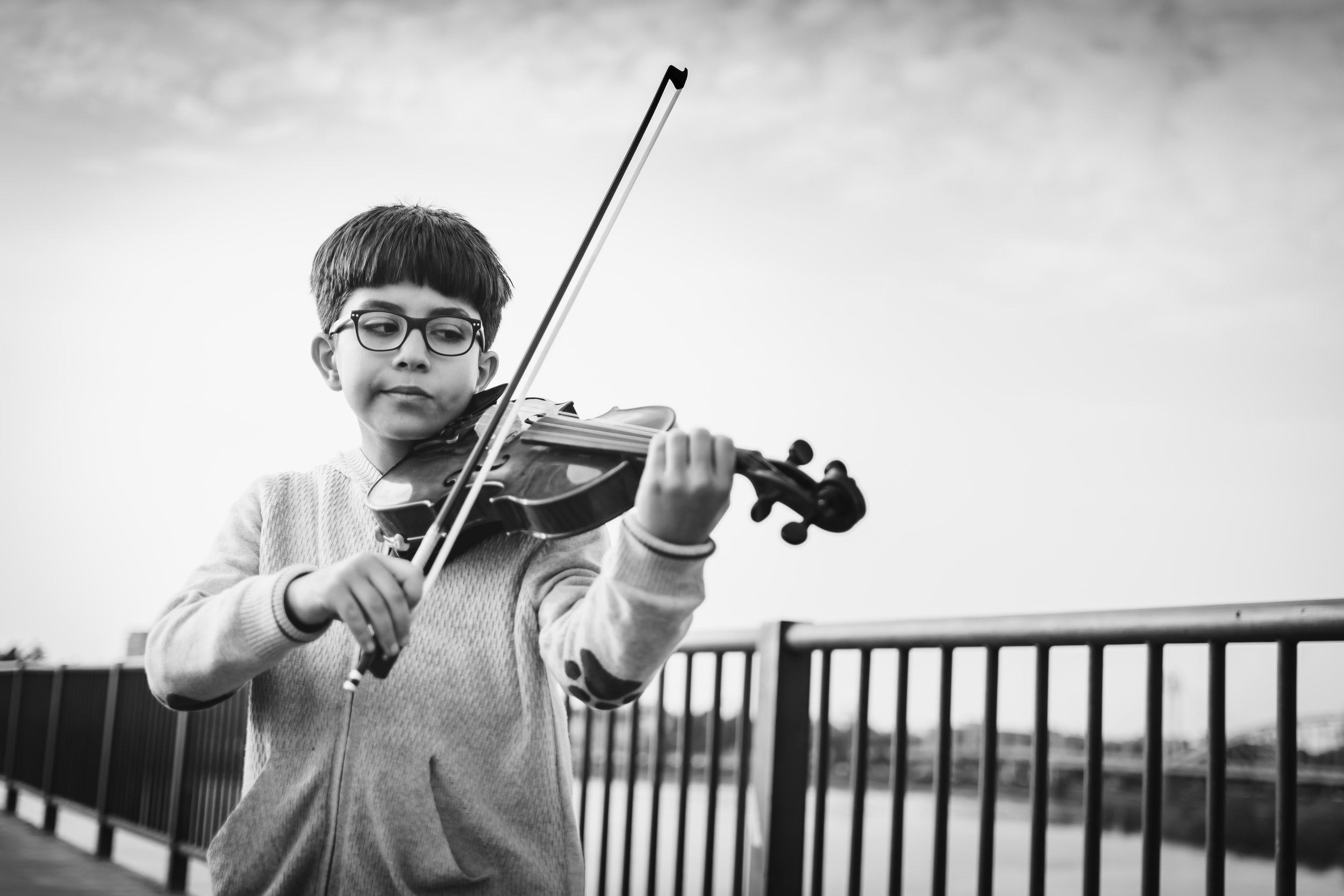
Philosophy and Teaching Method
The Suzuki Method.
Dr. Suzuki formulated his method from the simple observation that all healthy, hearing children learn to speak their native language at a very early age. With perfect accuracy they are able to learn the dialect, pronunciation, and inflection used in their own environment. Suzuki observed the ease with which children learn to speak. They hear thousands of repetitions of one word and add on new words one at a time through hearing and repetition, unencumbered by harsh criticism or fear of failure. Because young children learn to speak complex languages, it only makes sense that they can learn other complex skills as well. Why not learn skills as simply and naturally as learning to speak.
Thousands of children world-wide are developing considerable abilities in such complex areas as music, language, and mathematics; starting as early as the age of three. In North America, where the Suzuki Method is best known as an approach to music education, many have become familiar with the sight of young musicians, often school-age or pre-school age children, playing with an astonishing level of technique and musicianship. The Suzuki method is now used to teach bass, cello, flute, guitar, harp, organ, piano, recorder, Suzuki Early Childhood Education, Suzuki in Schools, trumpet, viola, violin, and voice.
“Musical ability is not an inborn talent but an ability which can be developed. Any child who is properly trained can develop musical ability, just as all children develop the ability to speak their mother tongue. The potential of every child is unlimited.”
Dr. Suzuki’s fundamental belief is that all children possess natural ability that grows according to the degree to which they are nurtured (education). In Talent Education, ability is fostered by parents and teachers working together with children. Parents create a home environment conducive to learning, structured listening, and practice activities. In a sense, parents are the real teachers. The professional teacher acts as a mentor to both parents and children, guiding them in learning activities and helping them to overcome obstacles.
It is never too early to begin music education using the Suzuki Method. Training may begin as early as age zero by means of exposing children to selected recordings of good music at home until the children, even as infants, begin to recognize them.
Formal training with a musical instrument may begin at age three when children learn the basics of position and posture. A step-by-step progression is followed until they can play simple songs, then major works.
Although former Suzuki students are performing on concert stages and in major orchestras world-wide, the production of professional musicians is not the primary goal of Talent Education. Rather, Talent Education seeks to develop the hearts and minds of children with results beyond music itself including increased self-discipline, higher sensitivity, improved academic skills and a sense of confidence and self-esteem.
We Make The Difference.
Solo & Group Learning Bundle: Teachers in the West Texas Suzuki Society provide private lessons as well as group lessons in one program. Children and parents learn from observing their peers as well as from their teacher.
Frequent Performance Opportunities: Even the youngest students are encouraged to perform in front of an audience.
Lesson Materials Progress Gradually: This encourages memorization through repetition. Technique is taught in the context of pieces as well as through technical exercises.
Promotes Music Enjoyment & Collaboration: WTSS emphasizes the enjoyment of music rather than technique alone. Teachers focus on music expression as well as technique development from a very early stage.
Character First: At WTSS, development of a fine character is equally important to the mastering of a musical instrument. Based on the concept of “Character First, Ability Second”, our approach is to embrace the whole child and work from all perspectives to nurture his/her love of music together with the development of techniques.
Confidence/Leadership Development: Young children earn a sense of accomplishment early on. Performance, solo and with peers, in front of an audience develops poise and confidence. Senior students are engaged in leadership roles to provide guidance and support to junior students.
Participation of parents: Parents provide a context of encouragement, love, and support; building self-assurance, esteem, and compassion. Prepare to commit time and energy. Group classes, individual lessons, and recitals are scheduled on different days requiring multiple trips per week.
Book a FREE lesson
Want to see what we’re all about for yourself? Book a free lesson today with no obligation to sign up for lessons.
